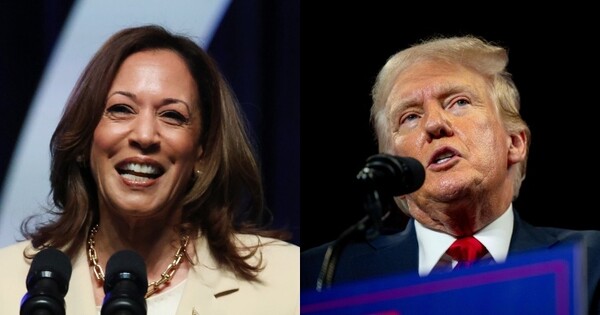
A report has emerged that both Republican presidential candidate Donald Trump and Democratic presidential candidate Kamala Harris have a pro-virtual asset stance in the US presidential election in November, which will help the industry and the market no matter who wins.
The report, 'The US Presidential Election and the Future of the Crypto Industry', released on the 2nd by Hashed Open Research (HOR), a think tank of blockchain investment company Hashed, evaluated this presidential election as the first election in which virtual asset issues influenced the election landscape in various ways.
HOR observed that around 20% of all voters have experience investing in virtual assets, and that the two parties are competing with each other on pro-virtual asset pledges to win over their votes.
In particular, the Democratic Party analyzed that it would be difficult to maintain its existing hard-line policy stance because the proportion of virtual asset investors among traditional Democratic Party supporters is high.
Candidate Trump is publicly showing a friendly stance by emphasizing that he owns virtual assets. Citing public office candidate asset disclosure data, US media reported that candidate Trump owns about $1 million (about 1.3592 billion won) worth of Ethereum.
At the 'Bitcoin 2024' conference held on July 27, he announced that Bitcoin will be held as a national strategic asset like crude oil and that "the United States will become the world's virtual asset capital."
Harris first mentioned virtual assets on September 22, saying, “We will encourage innovative technologies such as artificial intelligence (AI) and digital assets, while protecting consumers and investors.”
HOR predicted, “Although the details have not been disclosed yet, given that virtual assets have already become a major issue in the presidential election, it is likely that (the Democratic Party) will continue its own efforts to find a compromise.”
According to HOR, a total of 54 related bills were proposed in the 118th session of the U.S. House of Representatives and the Senate after a thorough investigation of the bills related to virtual currency and blockchain. Specifically, 11 bills to revitalize the blockchain industry, 14 bills on central bank digital currency (CBDC) and stable coins, 15 bills to clarify virtual asset regulations, 10 bills on anti-money laundering (AML) and counter-terrorism financing (CFT) sanctions, and 4 bills on investor protection.
HOR predicted that a favorable environment would be created, saying, “Although there are cases where bills have only passed in one chamber or the other or have not been finalized due to the President’s veto, the regulatory atmosphere centered around the Securities and Exchange Commission (SEC) will significantly improve next year.”








